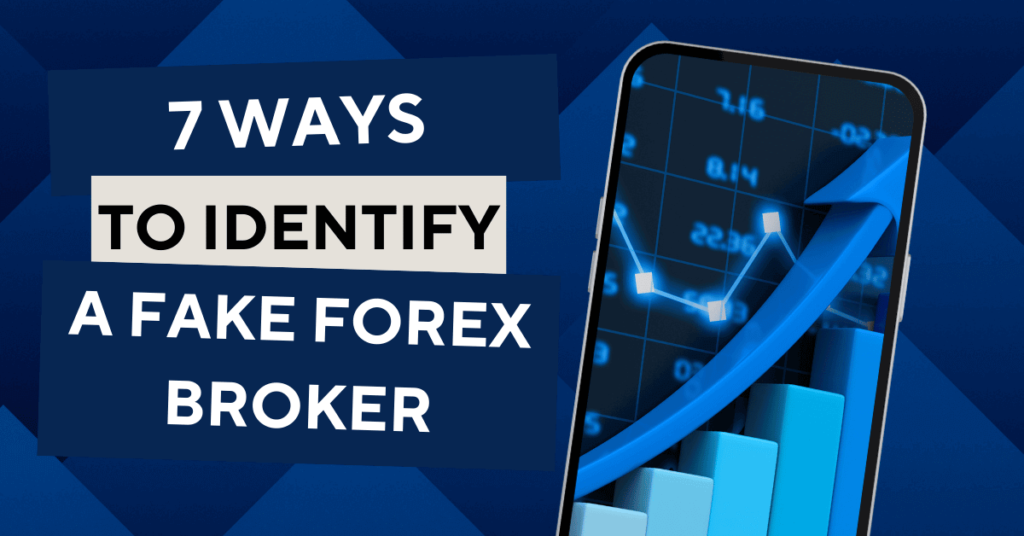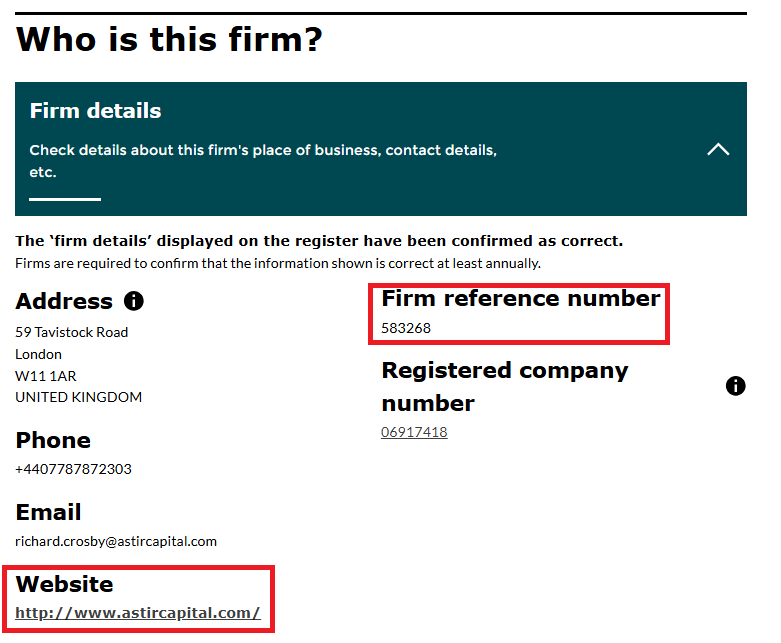Spotting the difference between a legit forex broker and a scam can save you from serious financial losses and a lot of stress. Nobody wants to fall for a fake broker! That’s why we’ve put together this guide with practical tips to help you verify if your broker is the real deal and keep your investments safe.

Are They Properly Regulated?
The first step in spotting a fake forex broker is to check if they’re licensed by a recognized financial authority. Legitimate brokers follow strict rules and guidelines set by regulators like the FCA (UK), ASIC (Australia), or CFTC (US) to ensure transparency and protect traders.
How to Check:
- Find Their License Number: Reputable brokers display their regulatory details prominently on their websites.
- Verify the License: Visit the official website of the regulatory body and search for the broker’s name or license number.
- Match Domain Details: Scammers often steal the credentials of legitimate companies, including their name and license number, to appear genuine. However, they have no actual affiliation with the real company. Verify if the broker’s domain name matches the one registered with the regulator.
Important Note:
Unfortunately, not all financial regulators, like the ASIC, display the registered domain names for their licensed companies. In such cases, cross-check the broker’s contact information and website details with the regulator’s records.
It’s crucial not to confuse a company’s registration number with a license number. A company can be legally registered in the United Kingdom but still lack a license issued by the Financial Conduct Authority (FCA). Being registered as a business does not equate to being authorized to provide financial services.
Example: MasterTradingFX
Let’s use MasterTradingFX as an example of how fraudsters manipulate regulatory details to appear legitimate. On their website, they claim to be regulated by the Financial Conduct Authority (FCA) under license number 583268 (see screenshot below).

- When this license number is checked on the official FCA register, it becomes evident that it does not belong to MasterTradingFX but to another company entirely.
- Furthermore, the domain mastertradingfx.com is not listed as an authorized website associated with this license number.

This mismatch is a clear indication that MasterTradingFX is fraudulently using another company’s credentials to deceive investors.
What Are People Saying About Them?
Reviews can tell you a lot. If other traders are complaining about things like withdrawal issues, bad customer service, or shady tactics, take that seriously.
Pro Tip:
- Don’t just rely on their website reviews—those can be fake.
- Check independent forums and platforms where users share their real experiences.
If you see consistent complaints about scams or withdrawal issues, it’s probably best to steer clear.
Do They Communicate Transparently?
A legit broker will always make it easy for you to get in touch. They’ll have clear contact details, respond promptly, and won’t leave you hanging when you have questions.
Red Flags:
- No contact information or only a generic email.
- Slow or unhelpful responses to your inquiries.
- Unprofessional Email Addresses: In our reviews, we often come across websites using generic email addresses, such as Gmail.com. To be clear, professional trading platforms never use a generic email provider. Instead, they use email addresses tied to their official domain (e.g., [email protected])
Test their customer service before you commit—it’s worth the effort.
What Are Their Deposit and Withdrawal Policies?
Fake forex brokers love making it easy to deposit money but a nightmare to get it back.
Here’s What to Check:
- Are their fees and withdrawal timelines clearly stated?
- Do they suddenly ask for extra “processing fees” before releasing your money?
If something feels off or overly complicated, proceed with caution.
How Reliable is Their Trading Platform?
Your trading platform is the core of your forex experience. A legitimate broker provides a platform that is smooth, transparent, and easy to use, offering all the necessary tools for successful trading. However, fake forex brokers often take a very different approach—they use fake trading platforms designed to deceive you.
What to Watch Out For:
- Fake Profit Displays: Fraudulent brokers can manipulate the platform to make it appear as though you’re earning profits. This tactic is used to build trust and push you to invest more money in hopes of winning bigger.
- Rigged Trades: On these fake platforms, trades can be manipulated to result in losses or wins that are completely fabricated. This means you’re not trading in real market conditions.
- Missing Tools: Essential tools like charts, indicators, and account tracking may be missing or poorly implemented. This limits your ability to analyze the market effectively and exposes the platform’s lack of professionalism.
- Crashes and Freezes: Platforms that frequently crash or freeze during trades are not only frustrating but are often signs of an unreliable or fake broker.
Pro Tip:
Test the platform with a demo account before depositing real money. A demo account allows you to explore the platform’s functionality and ensures that it’s genuine and reliable. If the platform feels unprofessional, overly complicated, or too good to be true, it’s a red flag you shouldn’t ignore.
Are Their Offers Too Good to Be True?
If a broker is promising guaranteed profits or insanely high returns, take a step back. Forex trading comes with risks, and any broker claiming otherwise isn’t being honest. While leverage can amplify profits, it also increases potential losses, and fraudulent brokers often exploit this to lure unsuspecting traders.
Be Skeptical Of:
- Absurdly High Leverage: While leverage can be a legitimate tool, brokers offering excessively high leverage without clear disclaimers are often trying to bait inexperienced traders.
- “Get Rich Quick” Schemes: Claims of guaranteed high returns or “no-risk investments” are classic traps.
Important Note:
Financial regulators in many countries, such as the FCA (UK) or ASIC (Australia), have capped maximum leverage limits to protect traders. For example:
- FCA-regulated brokers offer leverage capped at 1:30 for retail clients to minimize risks.
- Offshore brokers, on the other hand, often offer much higher leverage, such as 1:500 or more, which can seem appealing but comes with significantly higher risk.
Remember, real brokers will talk about risks upfront—not hide them.
Do They Have a Physical Presence?
A legitimate forex broker will have a real office and a verifiable address. If they’re operating out of a P.O. box or a suspicious offshore location, it’s a major red flag that should not be ignored.
What to Watch For:
- Generic Addresses: Fake trading platforms often use generic addresses, especially in the United Kingdom, to appear credible. For example, 20-22 Wenlock Road, London, England, N1 7GU is a frequently used address by scammers, as it’s easy to register and doesn’t belong to a real trading business.
- Offshore Locations: Many fraudulent brokers operate from offshore jurisdictions, which often lack strict financial oversight. A few years ago, most fake trading platforms claimed to operate out of Suite 305, Griffith Corporate Centre, Beachmont, Kingstown, Saint Vincent and the Grenadines, a location infamous for harboring unregulated brokers.
- The Trend Has Shifted: Nowadays, scammers are increasingly using addresses in Saint Lucia, such as the well-known “Ground Floor, The Sotheby Building, Rodney Village, Rodney Bay, Gros-Islet, Saint Lucia.” A quick Google search of this address will reveal countless forex brokers tied to it, many of which are unregulated.
Important Note:
The Financial Services Regulatory Authority (FSRA) of Saint Lucia has publicly stated that forex trading activities are NOT REGULATED in the country. This means that any broker claiming to operate out of Saint Lucia is likely doing so without proper oversight, putting your investments at significant risk.
What to Do:
- Look up the broker’s address on Google Maps to verify if it’s a legitimate business location.
- Check the company’s background, including when and where it was established.
- Avoid brokers using notorious addresses associated with scams or unregulated jurisdictions.
Final Thoughts
Fake forex brokers are out there, but they’re not hard to spot if you know what to look for. Trust your instincts and take the time to do your homework before you invest. Remember, a legit broker prioritizes your success and operates transparently—no games, no gimmicks.
By following these tips, you’ll keep your money safe and enjoy a much smoother trading journey. Happy trading!
